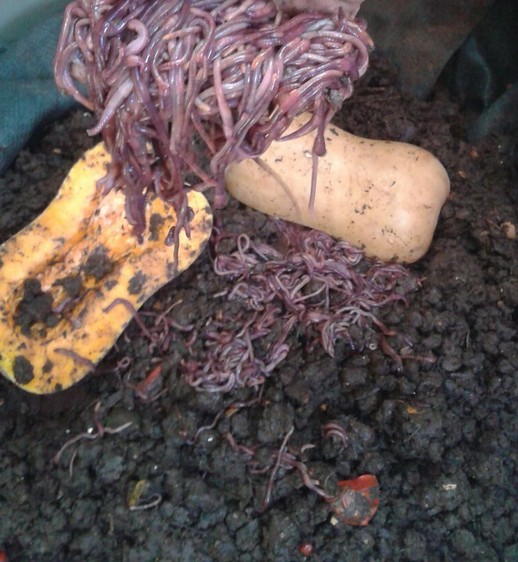Worm Farm, Earthworm farms, Vermicompost, Wormeries, Wormbox, Worms, Worm, Johannesburg, Centurion, Domestic Worms, Pretoria, Recycling, Composting, Vermicomposting - Wormsansons earthworms farm and garden




Main menu:
Worm Farm, Earthworm farms, Vermicompost, Wormeries, Wormbox, Worms, Worm, Johannesburg, Centurion, Domestic Worms, Pretoria, Recycling, Composting, Vermicomposting

1 Kg Special
Red Wigglers

100 EarthWorms Red Wigglers
Big For Fishing ± 60mm

250g ±1000 Earthworms Red Wigglers
250g ±1000 Earthworms Red Wigglers

Earthworms Red Wigglers
Red worms are nature's ultimate composting worm and a great pick for worm farms. Red worms go by many names. They're often called red wigglers, tiger worms, manure worms, composting worms, and the trout worms. Whatever you call them they're among the best composting worms available
Organic Fertiliser and Worm composting - start your own worm farm today
Every day tons of rotting organic waste material land up at our land fill sites across the country, causing poisonous gasses, also called Greenhouse gasses to enter the atmosphere and contribute in a big way to a phenomena known by all of us by now, as global warming.
On top of that, tons of usually chemically based fertilizers are used in most of our domestic gardens and agriculture, which in turn is washed out and pollutes our rivers and dams, our precious drinking water and eventually land up in our oceans, bringing our precious coral reefs under severe pressure and often killing large coral reefs, resulting in an already severe shortage of fish reserves around the globe.We can all contribute and have an enormous impact on this by recycling our daily organic waste products, which represents approximately 25% of our daily wastage, with the help of earth worms.
What type of worms are used?
The types of worms used are of a special kind, the “Eisenia Fetida” or also named “Red Wigglers”, who are looking the same to the untrained eye, as the normal earth worms in our gardens. These worms are prolific breeders and multiply very quickly. They can consume half their weight of organic waste per day. (One kg of worms can consume 500 gr of organic waste daily).
Harvesting the rewards
The resulting process is called Vermiculture or Vermicomposting as they convert the organic waste into Vermicastings (worm pooh) and Vermiliquid (worm tea).
The castings as well as the liquid are odorless. The compost, also referred to as “Black Gold”, is the finest concentrated natural compost and soil conditioner one can get on earth, looking and smelling as rich dark forest compost. One part of compost is mixed with four parts of garden soil.
The liquid is used, diluted as 1 part liquid to 10 parts of water, as a fantastic fertilizer. Both compost and liquid are also very effective pest suppressants.Now let's look at the Worm Farm
The Worm Farm consists of four towered components, which only take a very limited space and can be placed in your courtyard, garage, wendy house, etc.The bottom bin has a tap in order to drain the Worm teaThe second bin is the actual work farmThe third bin comes automatically into operation when the second bin is full. By putting food in the third bin the worms will vacate the second bin by themselves. (no need to touch the worms) after which the compost in the second bin can be harvested.The fourth bin acts as a lid and storage place for your farm accessories.